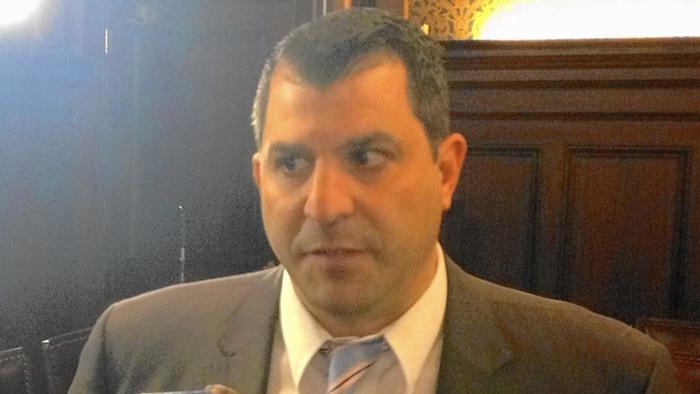|
Will stronger child sex abuse bill get a vote?
By Bill White
Rep. Mark Rozzi doesn't like hearing that it's too close to the election for legislators to support the strongest possible version of House Bill 1947, the child sexual abuse statute of limitations bill. "That's somewhat disconcerting to me," he said. "Any representative or senator who would make a comment like that should be voted out." Anyway, Rozzi isn't convinced voting in favor would be all that risky. "The majority of people in Pennsylvania know what's going on," he said. "They want this to happen." The last time I wrote about Berks County Democrat Rozzi, it still was unclear whether the House leadership would go along with his plan to discard the watered-down Senate version of the bill and restore its most important component to many survivors and advocates, the provision of some kind of retroactive access to the courts for victims of past abuse. There was some sentiment that it would be wiser to accept the weaker bill and get it signed rather than risk returning it to a very uncertain fate in the Senate. After all, even as amended by the Senate, HB 1947 is a big improvement on the state's present law. And with more grand jury reports likely as a result of investigations into abuse in several Pennsylvania dioceses, including Allentown, a renewed effort to restore retroactive civil access would gain plenty of momentum in the next legislative session. Steve Miskin, spokesman for House Majority Leader Dave Reed, R-Indiana, told me Friday afternoon that leaders still haven't decided which approach would be better. But Rozzi, who says he has testified to a grand jury about abuse he and some friends suffered at the hands of his Allentown Diocese priest when they were children, was adamant. "I'm never going to compromise on this bill," he told me last week. "That's like compromising our children." Rozzi told me that he expects a stronger version of HB 1947 to emerge from the House Rules Committee this week and go the House floor for a vote. Assuming that happens and it passes — and it was approved 180-15 the first time around — the ball would return to the Senate's court with just a handful of session days left. Rozzi said the re-amended bill would restore most of the House language, which would extend the right to file civil suits to victims up to age 50, including those blocked at present by the age limit of 30. That number actually does represent a compromise, since most advocates and three grand jury reports have pushed for a specific window of time in which all victims could sue. He said the bill still would eliminate the statute of limitations in future criminal child sex abuse cases and retain the Senate's language that lifts sovereign immunity protection in child sex abuse cases where negligence — the original bill required gross negligence — can be demonstrated. Assuming all ends up going as Rozzi describes it, the question is: Will the Senate allow this to come to a vote? The Senate's argument that providing retroactive civil court access is unconstitutional took a hit not long ago when new Attorney General Bruce Beemer reversed the stance taken by former solicitor general Bruce Castor, who had testified to the Senate Judiciary Committee that it's unconstitutional. Beemer essentially returned his office to the position it had had all along until Kathleen Kane appointed Castor and designated him to speak for them. In any event, this constitutional issue is best left to the courts, not to politicians. Castor's testimony just offered political cover for those who wanted to remove retroactivity, the chief lobbying target of the Catholic Church and state Insurance Federation. Rozzi, who said he has a meeting scheduled Monday with Senate Majority Leader Jake Corman, R-Centre, told me he thinks the strengthened bill will pass if it's allowed to come to a vote in the Senate. "We've been counting votes," he said. "If they put it up, we think we have the votes to pass it." If you're wondering why advocates are so determined to gain retroactive access for older survivors of abuse, here's how constitutional scholar and survivor advocate Marci Hamilton explained it when I spoke to her last month. "What people miss is that there are two universes of victims," she said. "The universe of victims being abused right now into the future, they need an extension [of the statute of limitations age.] But the victims that the law shut out for decades, we need to do something for those victims, too." Rozzi said, "All victims deserve to be protected, past, present and future. We need to expose those perpetrators." He concluded that it's time for legislators to do the right thing. "This has been going on now for over 12 years," he said. "These guys have always known what was going on. They have all seen the grand juries; they have all seen the recommendations. Where have they been? "They have always taken the easy way out. Now we're asking them to do something that in my mind should be very easy for them to do." Contact: bill.white@mcall.com
|
.
Any original material on these pages is copyright © BishopAccountability.org 2004. Reproduce freely with attribution.
